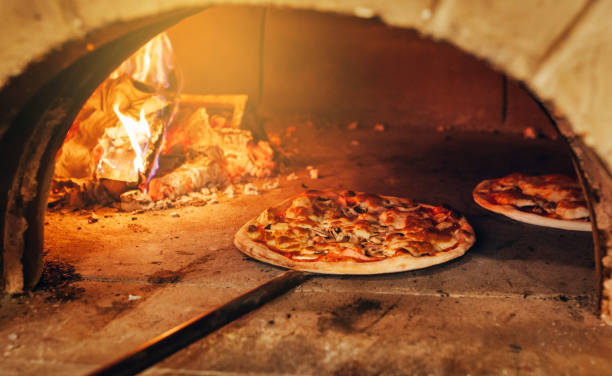Originating in Naples and reproduced worldwide in all imaginable—and even unimaginable—variations, pizza, alongside pasta, is the most beloved Italian food. From the classic Neapolitan pizza, the Queen or Margherita pizza, to the American Pepperoni pizza (which doesn’t even smell of peppers), today it is possible to eat pizza almost everywhere, although, unfortunately, not everywhere can you find a good one.
Some believe the old idea that wood-fired ovens are the only way to make a good pizza. Others argue that the deliciousness of a pizza depends on a combination of well-mixed factors, making even pizzas baked in electric ovens lip-smackingly good.
In this article, we list everything that contributes to the difference between an average pizza and an excellent pizza. This will help you reconsider if you believe that only wood-fired pizza is the “Pizza” with a capital “P” and make a conscious choice about the most suitable pizza oven for your needs and personal tastes.
Baking a Delicious Pizza: What Matters
There are different types of pizza, and personal taste certainly influences the definition of a “good pizza.” Each type requires different processing methods, dough hydration, and baking temperatures. Additionally, attention must be paid to the ingredients used, which are not the same for all. For example, Neapolitan pizza dough uses only type 00 flour, water, salt, and yeast, while a Bari-style pizza or focaccia dough includes remilled durum wheat semolina flour, yeast, oil, salt, and even sugar. Therefore, the taste of a good pizza does not depend exclusively on the type of oven—on which the baking method depends—but also on all these factors:
- Ingredients: Type and quality of the raw materials for the pizza dough
- Processing Method: Hand-kneaded pizza or pizza made with a planetary mixer or a pizza dough mixer
- Pizza Leavening: Short or long leavening
- Dough Hydration: The percentage of water in the pizza dough relative to the amount of flour
- Baking Temperature: The ideal temperature for a crispy and tasty pizza
What is the Ideal Pizza Baking Temperature?
Among all the factors that matter for preparing a good pizza, the baking temperature depends on the type of pizza oven used, and thus the chosen baking method:
- The baking temperature for pizza in a wood-fired oven is about 450°C.
- The baking temperature for pizza in an electric oven is about 250-300°C.
A skilled pizzaiolo who can manage the oven temperature well will be able to produce a good pizza.
The Advantages of Electric Pizza Ovens Compared to Wood-fired Ovens and Vice Versa
There is no absolute reason to prefer wood-fired ovens over electric pizza ovens. If the only parameter related to the oven that makes one pizza better than another is the baking temperature and the pizzaiolo respects it, then other factors become decisive in choosing a wood-fired oven instead of an electric one. Without going into too much detail, here are some advantages and disadvantages of both types that will help you decide which one to purchase.
Electric Oven:
- Practicality and Versatility: Easy to use, heats up quickly, and maintains a constant temperature. Suitable for both beginners and experts.
- Efficiency: Rapid heating time and easy maintenance, ideal for frequent use.
- Cost-effectiveness: Wide range of prices and low, predictable operating costs.
- Eco-sustainability: Uses electricity, with the possibility of using renewable sources.
Wood-fired Oven:
- Authenticity: Offers a traditional baking method with a unique smoky flavor and inimitable aroma.
- High Temperature: Reaches high temperatures ideal for authentic Neapolitan pizza.
- Engaging Experience: Managing the fire and wood provides a satisfying artisanal experience.
- Versatility: Suitable for cooking a variety of foods besides pizza and ideal for large, open spaces.
- Long-term Value: Represents an investment that can increase the property’s value.
Choosing an Electric or Wood-fired Oven: What’s the Solution?
The choice between a wood-fired oven and an electric oven depends on the intended use, personal preferences, the desired cooking experience, and available space.
Choosing a wood-fired oven means valuing the authenticity and unique flavor of traditional pizza but also considering a greater commitment in terms of budget and work, and it requires suitable space. It is ideal for both professional and domestic use.
The choice of an electric oven offers numerous advantages, making it a practical, efficient, and eco-sustainable solution for pizza preparation. Whether for home or professional use, an electric oven can meet everyone’s culinary needs, always guaranteeing delicious results.
Whether making pizzas is your profession or you enjoy preparing pizza at home and want a professional oven, the advice is to purchase the oven by evaluating which of the above-listed advantages is most relevant to you.








